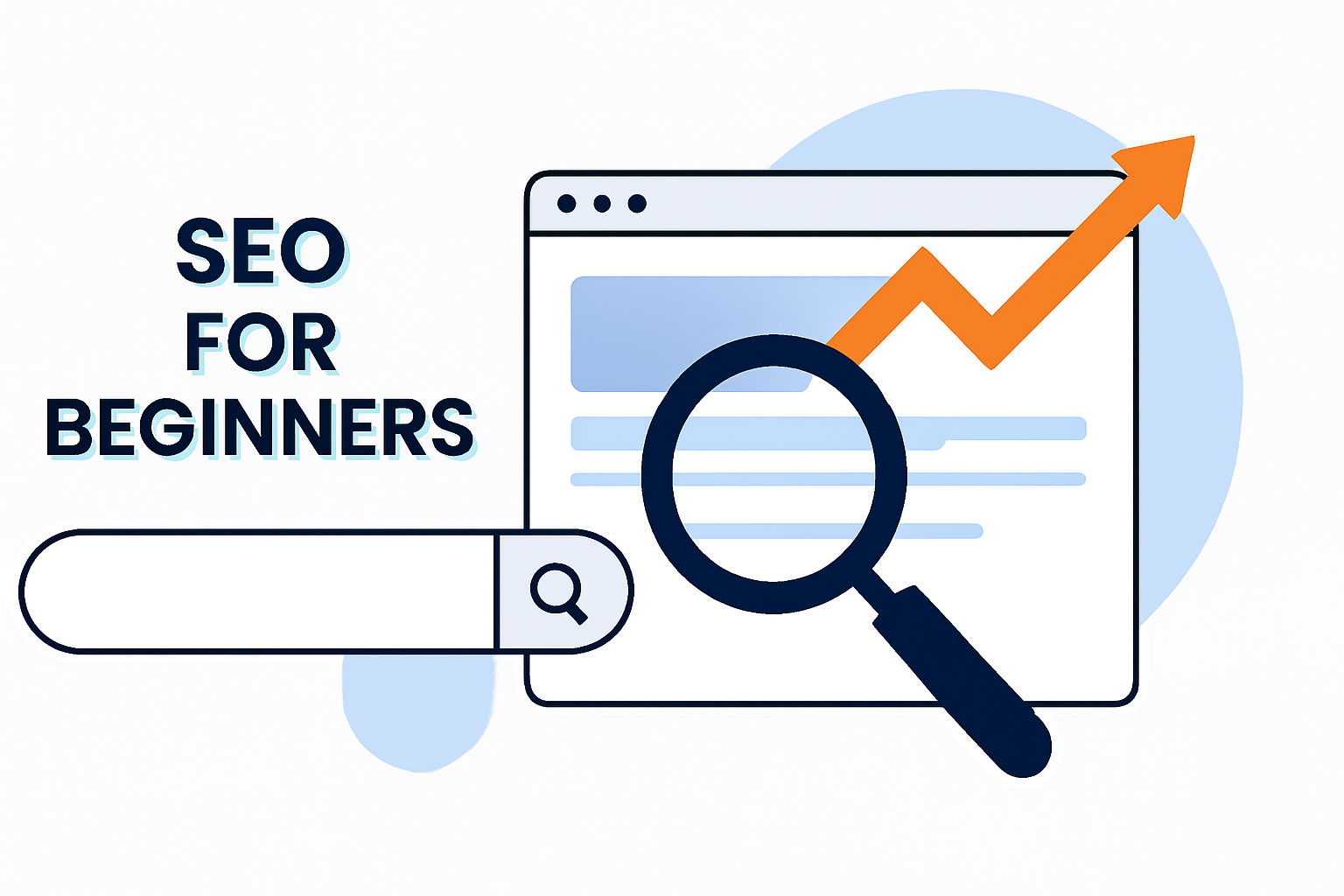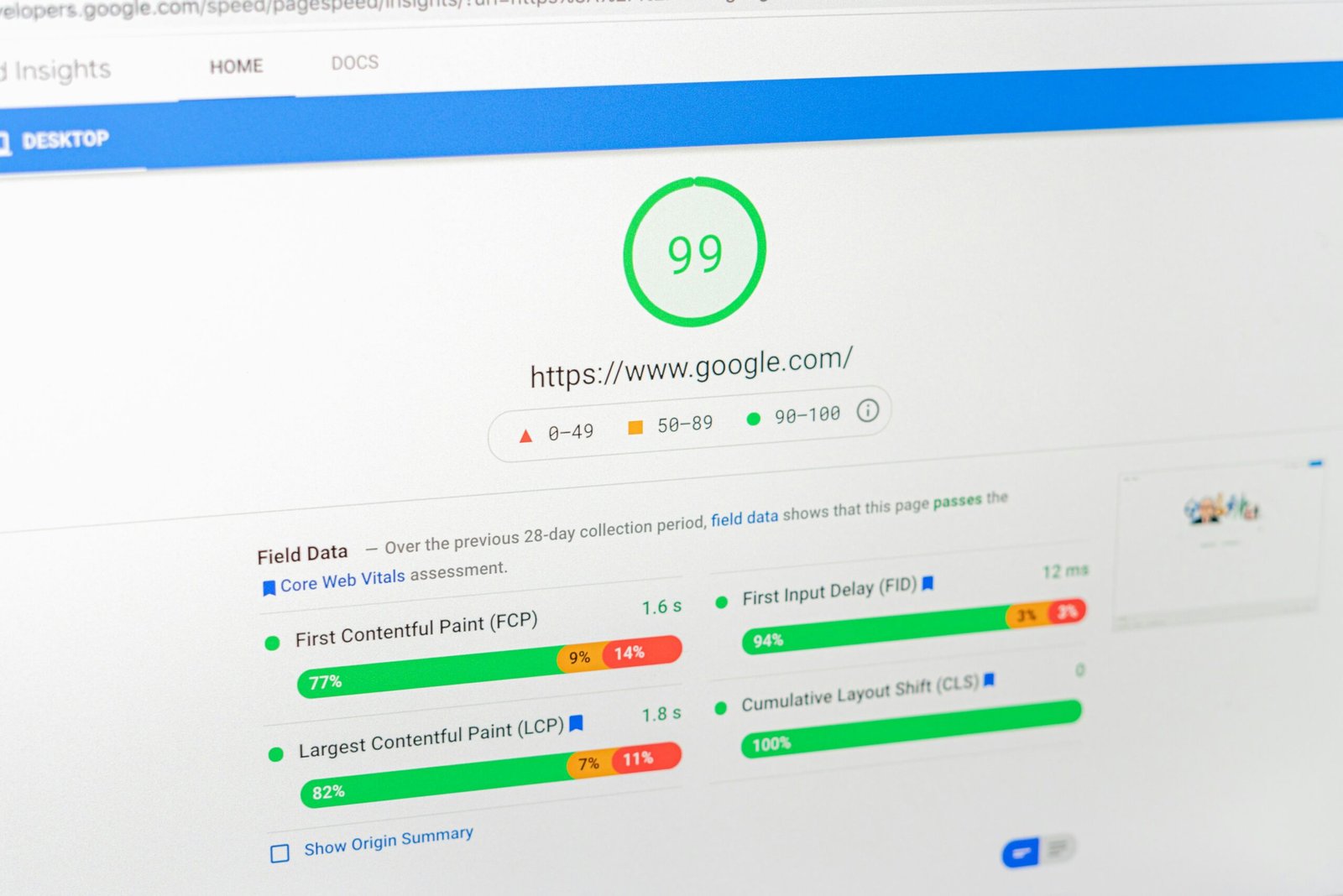Off-page SEO refers to the various optimization strategies and practices that occur outside the confines of a website, yet significantly influence its visibility and prominence in search engine results. Unlike on-page SEO, which encompasses elements like content quality and keyword usage within the site itself, off-page SEO focuses on external factors that impact a site’s authority, trustworthiness, and relevance. These factors include backlinks, social media engagement, and brand mentions across different platforms. A comprehensive understanding of off-page SEO is essential for achieving long-term success in digital marketing.
The significance of off-page SEO in the realm of search engine optimization cannot be underestimated. It plays a crucial role in how search engines evaluate and rank websites, with the quality and quantity of backlinks often regarded as paramount indicators of a site’s authority. When reputable websites link back to your content, it sends a positive signal to search engines, which may result in improved rankings. Additionally, fostering a strong presence on social media and enhancing brand visibility can create indirect benefits for SEO performance, as these channels drive traffic and engagement that further signal your site’s relevance.
As digital landscapes continue to evolve, having a robust off-page SEO strategy is critical for building a strong online presence. This strategy involves not only acquiring backlinks but also engaging with audiences across various platforms, which can lead to organic growth. By establishing a strong brand presence and cultivating relationships with influencers and industry leaders, businesses can enhance their credibility and recognition. In the sections that follow, we will delve into specific strategies and tools that can optimize off-page SEO efforts, helping you to navigate this vital aspect of search engine optimization effectively.
Understanding Backlinks and Their Importance
Backlinks are an essential component of off-page SEO, acting as a crucial vote of confidence from one website to another. When a site links to your content, it suggests to search engines that your information is credible and valuable. This endorsement not only enhances your reputation within the digital ecosystem but also significantly influences your site’s placement in search engine rankings. The more high-quality backlinks your website holds, the higher it can potentially rank in search results.
Different types of backlinks can yield varied benefits for your site. Dofollow links, for instance, allow search engines to follow them and pass on authority from the linking site to the linked site. Conversely, nofollow links do not contribute to your site’s authority but may still drive traffic and improve visibility. An exemplar of beneficial backlinks is editorial links that come from trusted sources, and these are often deemed some of the most authoritative types of backlinks you can obtain.
The process of acquiring these valuable backlinks is known as link building. Effective link building strategies involve creating high-quality content that naturally attracts links, guest blogging on reputable sites, and engaging in partnerships or collaborations with other companies or influencers in your industry. Furthermore, it is crucial to bear in mind that not all backlinks are created equal; links originating from reputable, high-authority domains are more beneficial than those from lesser-known or low-quality sites. Thus, focusing on the quality of your backlinks rather than merely their quantity is essential. Establishing a robust link profile can significantly enhance your website’s authority, visibility, and overall success in achieving your digital marketing goals.
Effective Link Building Strategies
Link building is a crucial component of off-page SEO that enhances a website’s authority and visibility. By acquiring high-quality backlinks, you can improve your site’s ranking in search engine results pages. Here are several effective strategies to build links that can help optimize your off-page SEO efforts.
First, consider outreach to influencers within your niche. Identifying key influencers who have a substantial following and are respected in your industry can yield valuable backlinks. Preparing personalized emails that highlight mutual interests and the benefits of collaboration is essential. Offer compelling content or data that they might find useful to encourage sharing. This method not only generates links but also builds relationships that can lead to future collaborative opportunities.
Another effective method is guest blogging, which involves writing content for other websites in exchange for a backlink to your site. Before you start, identify relevant blogs that align with your niche or target audience. Ensure that the blogs have good domain authority and an engaged readership. When crafting guest posts, focus on providing high-quality content that addresses the audience’s needs. Including a natural link back to your site will not only enhance your off-page SEO but also enhance your reputation as an authority in your field.
Social media platforms also present a valuable avenue for link building. Sharing your content on social networks can increase visibility and encourage users to link back to your website. Engaging with your audience through comments, shares, and discussions can lead to organic link generation as users find your content worthy of citation. Additionally, utilizing social media to connect with industry professionals can provide opportunities for collaborative content creation or involvement in podcasts, further amplifying your link profile.
Implementing these strategies will significantly strengthen your off-page SEO approach. By building high-quality backlinks through influencer outreach, guest blogging, and effective use of social media, you can enhance your site’s authority and improve your rankings in search engine results.
The Role of Social Media in Off-Page SEO
In the digital marketing landscape, social media has emerged as a critical component of off-page SEO. The interaction between social media platforms and search engines significantly impacts a brand’s visibility online. Social signals, such as likes, shares, and comments, serve as indicators of the content’s relevance and quality. Search engines, including Google, increasingly factor these social interactions into their algorithms, which in turn influences how websites rank in search results.
Platforms like Facebook, Twitter, and Instagram have provided businesses with an avenue to engage directly with their audience. A strong social media presence can enhance brand awareness, foster community engagement, and drive traffic to a website. When users share content from a website on their social media accounts, it not only increases visibility but may also attract inbound links—an essential element of off-page SEO. The more a piece of content resonates on social media, the more likely it is to be referenced by other websites, thereby enhancing its search engine rankings.
To effectively harness social media for boosting off-page SEO, businesses should focus on creating high-quality, shareable content that encourages interaction. Utilizing compelling visuals, engaging copy, and pertinent hashtags can help attract a larger audience. Regularly participating in conversations related to the industry can also establish authority and relevance. Moreover, collaborations and partnerships with influencers can amplify reach, as their endorsements often lead to greater social signals and increased backlink opportunities.
Understanding the importance of social media in off-page SEO enables businesses to develop strategic campaigns that enhance their online visibility. By leveraging the influence of these platforms, companies can achieve better search engine rankings while building a loyal customer base.
Online Reputation Management (ORM)
Online Reputation Management (ORM) plays a pivotal role in shaping a brand’s visibility and trustworthiness in the digital landscape. As consumers increasingly rely on online resources to inform their purchasing decisions, effectively managing a brand’s reputation has become an essential off-page SEO strategy. Effective ORM involves monitoring, influencing, and maintaining the public perception of a brand, ensuring a favorable online presence that aligns with business goals.
Proactive ORM strategies can enhance brand visibility significantly. One fundamental technique is monitoring brand mentions across various platforms, including social media, blogs, and forums. Utilizing tools like Google Alerts, Brand24, and Mention can help businesses stay informed about online discussions surrounding their brand. This monitoring allows for timely responses and engagement with customers, which is crucial for fostering positive relationships.
Responding to reviews, whether positive or negative, is another important aspect of ORM. It shows customers that their opinions are valued and taken seriously. Prompt and professional responses to positive feedback can amplify customer satisfaction, encouraging repeat business and referrals. Conversely, addressing negative reviews with empathy and a solutions-oriented approach can mitigate potential damage to a brand’s image. It is essential to publicly acknowledge concerns while taking conversations offline to resolve specific issues effectively.
In addition to monitoring and responding, employing reputation repair techniques can help manage negative feedback. This might include producing high-quality content, such as blog posts, articles, and videos, that reinforces the brand’s positive attributes and values. By promoting this content through social media and SEM strategies, businesses can push negative search results further down the page, thereby enhancing visibility and trustworthiness.
In summary, emphasizing on Online Reputation Management is crucial for businesses aiming to establish a solid online presence. By monitoring discussions, engaging with customers, and addressing negative feedback, brands can enhance their influence, ultimately leading to better off-page SEO outcomes.
Influencer Marketing and its SEO Benefits
Influencer marketing has emerged as a vital strategy within the realm of off-page SEO. This approach utilizes individuals who have established credibility and a substantial following within specific niches or industries. By engaging with influencers, brands can boost their online visibility and indirectly enhance their SEO efforts. One significant advantage of influencer marketing is its ability to generate valuable backlinks. When an influencer shares content related to a brand, it often includes links directing their audience to the brand’s website. These backlinks are crucial for improving domain authority and can lead to higher search engine rankings.
Additionally, influencer marketing plays a pivotal role in amplifying brand recognition. When reputable influencers endorse a product or service, they inherently lend credibility to the brand, making it more appealing to their followers. This increase in brand visibility can lead to higher traffic volumes to the company’s website. More visitors can ultimately improve metrics such as dwell time and lower bounce rates, both of which are favorable signals to search engines, positively influencing SEO performance. The engagement created through influencer partnerships can also lead to increased social shares and user-generated content, which are beneficial for off-page SEO.
To effectively leverage influencer marketing for SEO benefits, brands must first identify the right influencers whose audience aligns with their target market. Collaboration should focus on creating authentic and engaging content that resonates with the influencer’s followers. Establishing a mutually beneficial relationship is key; influencers should feel valued and not merely used for marketing purposes. In conclusion, harnessing the power of influencer marketing can significantly enhance off-page SEO by generating backlinks, increasing brand awareness, and driving traffic, making it an essential strategy for businesses looking to excel in the digital landscape.
The Impact of Content Marketing
Content marketing plays a crucial role in enhancing off-page SEO strategies. High-quality content not only engages the target audience but also serves as a catalyst for creating organic backlinks and facilitating social shares. When content resonates with readers, it increases the likelihood of users linking back to it, thus improving the site’s authority and search engine ranking.
To effectively leverage content marketing for off-page SEO, it is essential to produce shareable content that provides value, solves problems, or offers unique insights. This could encompass a variety of content formats, including blog posts, infographics, videos, and podcasts. For instance, an illustrative infographic that simplifies complex data can be easily shared across social media platforms, leading to increased visibility and potential backlinks from industry-relevant sites. Similarly, informative blog posts that address trending topics can entice readers to share with their networks, further amplifying reach.
Moreover, interactive content such as quizzes or polls can significantly enhance engagement levels. These types of content not only attract users but also encourage them to spend more time on the site, which is a positive signal for search engines. An example of a successful content marketing campaign is the “Will It Blend?” video series by Blendtec. By creating entertaining and informative videos demonstrating their blenders’ capabilities, the brand gained significant brand exposure, drove traffic to their website, and garnered numerous backlinks from various media outlets.
To maximize the effectiveness of content marketing in the realm of off-page SEO, practitioners should focus on creating compelling narratives that align with their audience’s interests. Utilizing storytelling techniques can enhance emotional connection and compel users to share content further. Overall, embracing quality content marketing is imperative for achieving strong off-page SEO results.
Tools for Off-Page SEO Optimization
Off-page SEO optimization is crucial for improving a website’s authority and visibility on search engines. To effectively manage and enhance off-page strategies, various tools and software can be employed. These tools assist in backlink analysis, social media monitoring, and competitor analysis, ultimately leading to a more refined and impactful off-page SEO strategy.
One prominent tool for backlink analysis is Ahrefs. This platform allows users to examine their backlink profiles, identifying not only the backlinks they have but also the quality and relevance of those links. By analyzing competitors’ backlink strategies, marketers can uncover valuable opportunities for link building, such as guest posting on relevant blogs or engaging in partnerships that foster mutual benefit. Furthermore, Ahrefs provides insights into the domain authority of potential backlink sources, making it easier to prioritize outreach efforts.
Another essential tool for off-page optimization is MOZ, which offers features such as Link Explorer. This tool enables users to track their domain authority over time and evaluate the impact of their link-building efforts. The insights gleaned from MOZ can help teams identify areas for improvement, allowing for a more targeted approach in acquiring high-quality backlinks.
In addition to backlink analysis, social media monitoring tools like Hootsuite can play a pivotal role in off-page SEO. By tracking brand mentions and analyzing engagement across various platforms, marketers can gauge the effectiveness of their social media strategies and adjust them accordingly. Engaging with audiences on social media can lead to increased brand awareness, which indirectly contributes to off-page SEO through link shares and organic mentions.
Lastly, competitor analysis tools such as SEMrush offer comprehensive insights into rivals’ strategies, including their backlink profiles and social media performance. Understanding what works for competitors can provide valuable lessons and highlight unique opportunities that can be leveraged to improve one’s own off-page SEO efforts. By utilizing these tools effectively, businesses and marketers can significantly enhance their off-page SEO strategy.
Measuring Success in Off-Page SEO
Assessing the effectiveness of off-page SEO strategies is critical to achieving long-term success in search engine optimization. The primary methods for measuring this success involve tracking key metrics such as backlinks, organic traffic, and search engine rankings. Each of these elements plays a vital role in evaluating the overall impact of off-page efforts.
Backlinks serve as one of the most significant indicators of off-page SEO performance. A robust backlink profile enhances a website’s credibility and authority in the eyes of search engines. To measure success in this area, tools such as Ahrefs or Moz can be employed to track the number and quality of inbound links. Analyzing the domain authority and relevance of the linking sites will provide insights into the effectiveness of backlink acquisition strategies.
Another crucial metric is organic traffic. This refers to the number of visitors who arrive at a site through non-paid search results. Tools like Google Analytics can help track organic traffic and understand user behavior on the site. Comparing organic traffic before and after implementing off-page strategies will help gauge effectiveness and highlight areas needing improvement.
Overall search engine rankings also offer valuable insight into off-page SEO success. Monitoring keyword rankings using platforms such as SEMrush can provide information on how well a website performs over time. A consistent upward trend in rankings typically indicates successful off-page SEO tactics.
To optimize these metrics effectively, it is essential to analyze the data periodically and adapt strategies accordingly. Best practices include setting specific goals, tracking progress regularly, and making informed adjustments based on the analysis. This flexible approach ensures that off-page SEO efforts remain aligned with established objectives, leading to sustained improvements in visibility and traffic.


